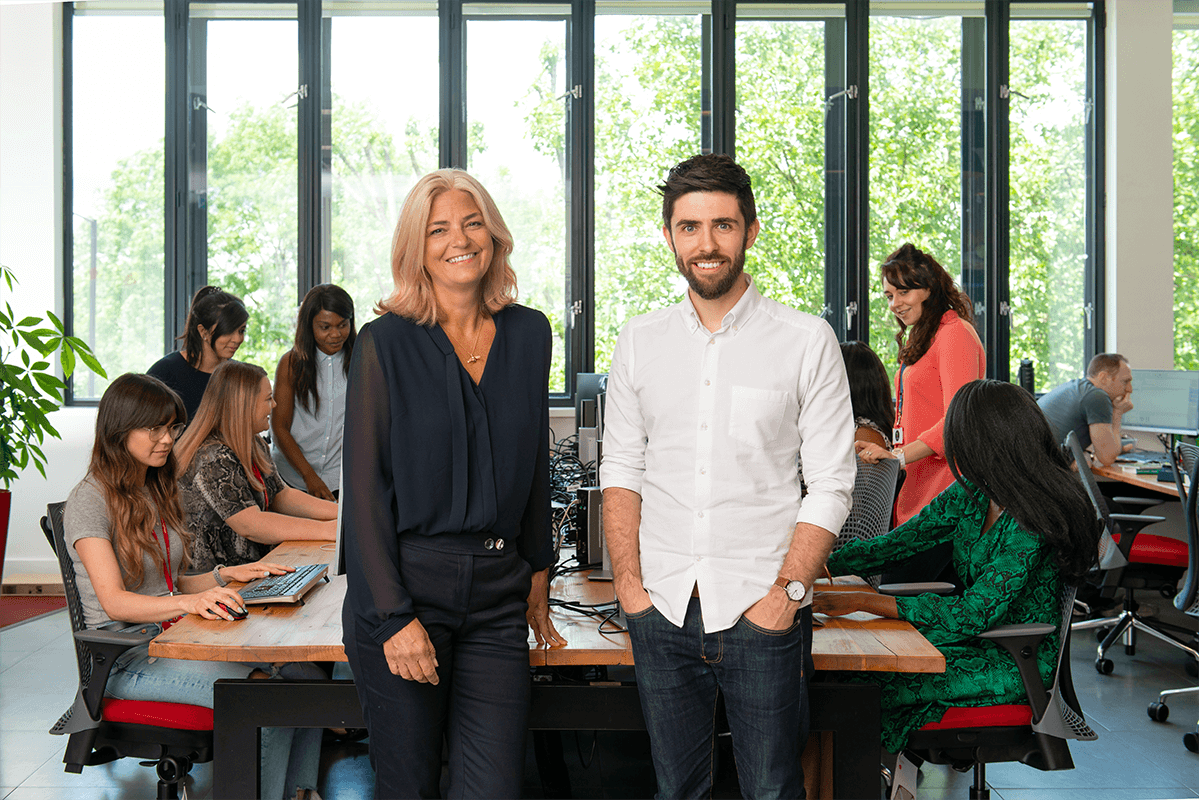There's never been a better time to start a business
Andy Fishburn is the managing director of Virgin StartUp. He shares why now is the time to start a business...
There’s never been a better time to start up. For budding founders, visionaries, innovators, and big-thinkers, we’ve never had so much opportunity, technology, free flow of information, data and reach. The tools at our disposal have never been greater, and as Simon Sinek posed at our MeetUp: “If not you, who, if not now, when?”
There will always be challenges that come with starting a business – with or without a recession. But recessions also bring a wealth of opportunities. Opportunities to fix problems. Opportunities to innovate. Opportunities to adapt. Opportunities to grow.
As we look to rebuild communities, the economy and our world, small businesses will have a huge role to play. And not just to rebuild what we had, but to build better. Building the future of business.
Since we launched Virgin StartUp back in 2013, I’ve seen thousands of founders start-up and scale-up, and now is arguably as good a time as any to be doing just that.
Microsoft, Hewlett Packard and Burger King were all founded in recessions, responding to the opportunities their founders were presented with at the time. During the last recession, which began in 2008, we saw many more businesses start up and thrive – like Airbnb, TransferWise, WhatsApp and Uber – which have changed the way we travel, manage our finances and communicate with one another.
Entrepreneurially-minded people will always find opportunities – and that sometimes means being creative in a crisis. Recessions are there for a reason. Something has usually gone wrong somewhere. That means there are problems to fix.
Groupon launched during the recession in 2008 to help companies move surplus stock that was leftover due to a slowdown in consumer spending – and to simultaneously encourage customers back into making discretionary purchases again.
There will be, and are, opportunities out there now. I have no doubt that if we look back in 10 years’ time, there will have been countless successful innovations spawned, changing the face of business once again.
But where to begin?
Do your homework
Starting up doesn’t happen overnight, and ideas are only the beginning. Founders from all industries will tell you that doing your research is essential, and that your first idea will likely not be the one you start with. The process is part of the work, so take the time to do your homework.
Founders are, in essence, problem-solvers. Find your problem – something you want to fix. If there’s a product missing from your life, what is it? Identify what gap your start-up would be filling, either on supermarket shelves, online, or as a service.
Problems don’t always have just one solution, and you can use tools like the Lean Canvas to find multiple solutions, or different areas of opportunity.
A good business plan
A sound, well-researched business plan is essential for any new start-up. With Virgin StartUp, when you apply for a Start Up Loan, you’re assigned a Business Advisor who can help you get your business plan in shape. They’ll work with you on your cash flow forecasts and ensure that you’re presenting a good product-market fit.
Don’t just ask your friends
If you’ve got a great idea and want honest feedback, you turn to your nearest and dearest, right? Not so fast.
People who care about you are less likely to offer an objective response to your budding business. Not only that, but your product or service is designed for a specific demographic – so if your friends and family are not your target audience, their opinion is essentially redundant.
Responses charged with personal feelings, such as compliments, are not objective facts that you can use to help build your start-up idea. Nor are hypothetical statements of interest, such as only potential interest in becoming a customer in the future – because that’s the supportive parent-like stance of someone who doesn’t want to hurt anyone’s feelings.
You’ll need to seek out your target demographic to do your research. Create online forms, get on social media, or search on online forums. Find your early adopters. These will be the people you need to convince to part with their cash on an unknown brand, so they’re the ones to see if you’ve found a product-market fit.
Fund your start-up
Most start-up ideas require some initial funding to help get them off the ground. Whether it’s from family or friends, or another source of income, a small amount can go a long way.
If you’re not fortunate enough to have the option to borrow from those close to you, there are lots of options open to you. Virgin StartUp is a delivery partner of the Start Up Loans scheme, and can help you access support from £500 to £25,000 per co-founder, for your idea.
If you apply for a Start Up Loan from Virgin StartUp, it’s not just vital funding you’ll access, but vital support, as well – 12 months of it, in fact. Not only will you have access to a Business Advisor when you’re prepping your business plan, but after the Loan is secured you’ll become a member of The Funded Club. A community of like-minded founders, you’ll have the opportunity to access 1-1 Mentoring, a Business Advice Helpline and exclusive networking and insightful events. More than just funding, Virgin StartUp endeavour to be with you each step of the way.
Start-up funding is just that – it’s a start. That’s when the hard work truly begins, and the road will be long and difficult at times. But the rewards of creating something out of nothing, and creating something to benefit people and the planet, are plain to see. If you’re thinking of starting a business in 2021, remember that the time has never been better. If not you, then who?








